#Meeting The Man: James Baldwin in Paris
Explore tagged Tumblr posts
Text




Meeting the man: James Baldwin in Paris (1970)
10 notes
·
View notes
Text


Meeting the Man: James Baldwin in Paris (1970)
10 notes
·
View notes
Quote
Love has never been a popular movement and no-ones ever wanted really to be free. The world is held together, really it is, held together, by the love and the passion of a very few people. Otherwise, of course you can despair. Walk down the street of any city, any afternoon and look around you. What you've got to remember is what you're looking at is also you. Everyone you're also looking at is also you. You could be that person. You could be that monster, you could be that cop. You've got to decide in yourself not to be.
Meeting The Man: James Baldwin in Paris
13 notes
·
View notes
Photo
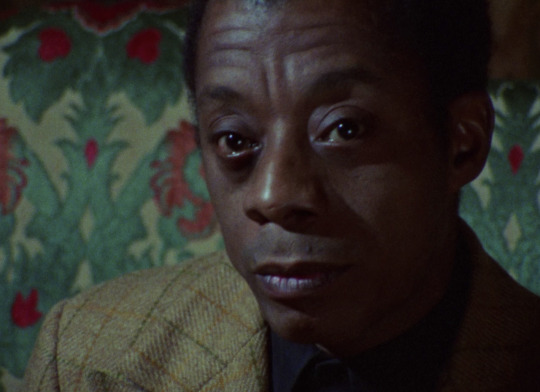
Meeting the Man: James Baldwin in Paris
1970. Documentary
By Terence Dixon
About: A portrait of James Baldwin, one of the towering figures of 20th-century American literature, Black culture and political thought, filmed in Paris.
Country: United Kingdom, France
Language: English
#Meeting the Man: James Baldwin in Paris#James Baldwin#American literature#Paris#Terence Dixon#Documentary#1970#1970s#United Kingdom#France#English
4 notes
·
View notes
Text
Lovely
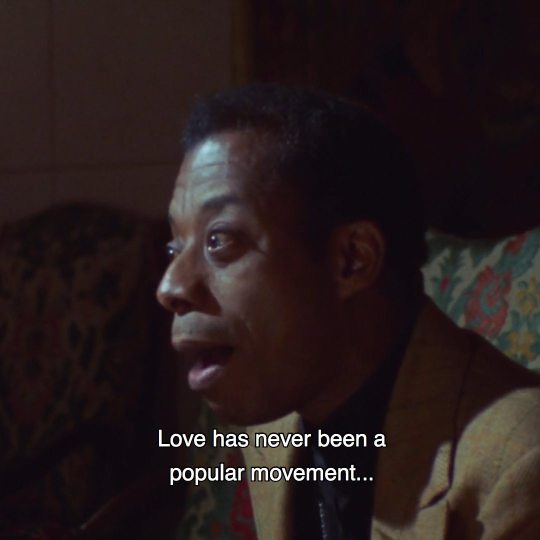

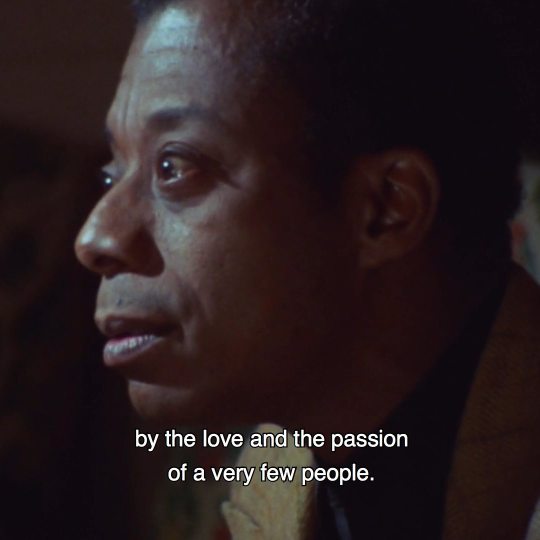


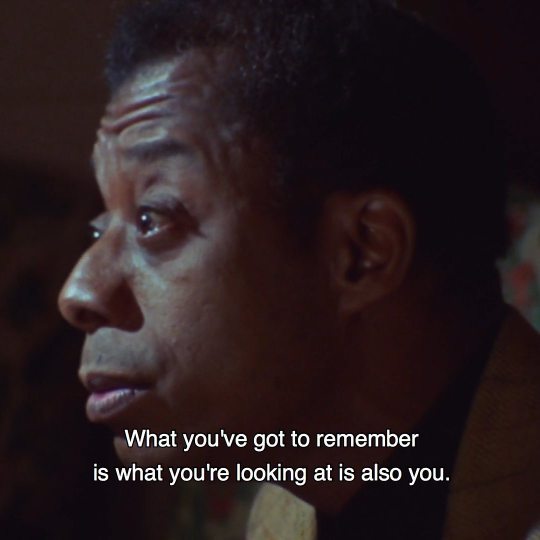


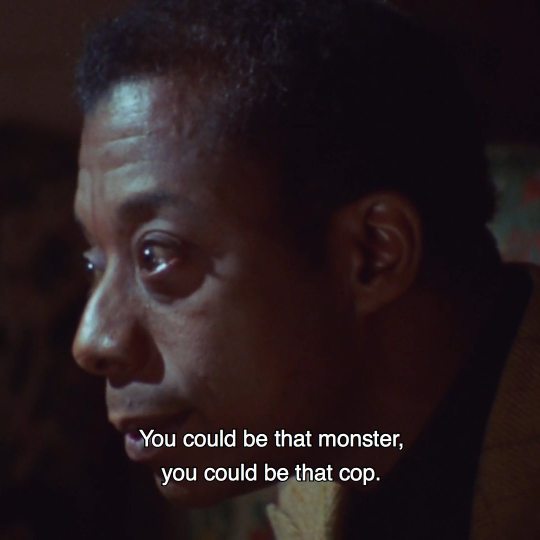
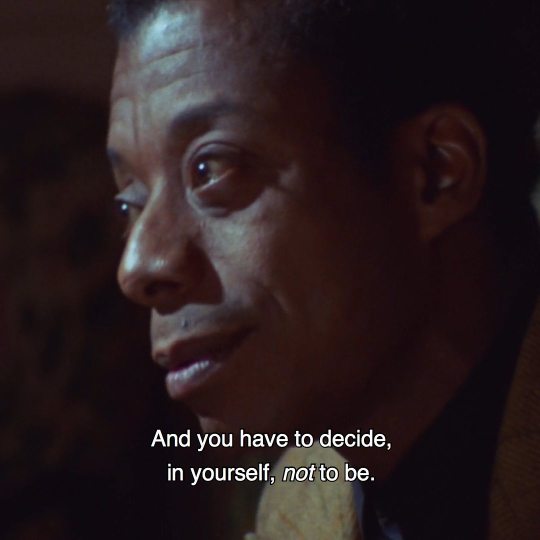
Meeting The Man: James Baldwin in Paris
(via Mubi)
120K notes
·
View notes
Text
free online james baldwin stories, essays, videos, and other resources
**edit
James baldwin online archive with his articles and photo archives.
---NOVELS---
Giovanni's room"When David meets the sensual Giovanni in a bohemian bar, he is swept into a passionate love affair. But his girlfriend's return to Paris destroys everything. Unable to admit to the truth, David pretends the liaison never happened - while Giovanni's life descends into tragedy. This book introduces love's fascinating possibilities and extremities."
Go Tell It On The Mountain"(...)Baldwin's first major work, a semi-autobiographical novel that has established itself as an American classic. With lyrical precision, psychological directness, resonating symbolic power, and a rage that is at once unrelenting and compassionate, Baldwin chronicles a fourteen-year-old boy's discovery of the terms of his identity as the stepson of the minister of a storefront Pentecostal church in Harlem one Saturday in March of 1935. Baldwin's rendering of his protagonist's spiritual, sexual, and moral struggle of self-invention opened new possibilities in the American language and in the way Americans understand themselves."
+bonus: film adaptation on youtube. (if you’re a giancarlo esposito fan, you’ll be delighted to see him in an early preacher role)
Another Country and Going to Meet the Man Another country: "James Baldwin's masterly story of desire, hatred and violence opens with the unforgettable character of Rufus Scott, a scavenging Harlem jazz musician adrift in New York. Self-destructive, bad and brilliant, he draws us into a Bohemian underworld pulsing with heat, music and sex, where desperate and dangerous characters betray, love and test each other to the limit." Going to meet the Man: " collection of eight short stories by American writer James Baldwin. The book, dedicated "for Beauford Delaney", covers many topics related to anti-Black racism in American society, as well as African-American–Jewish relations, childhood, the creative process, criminal justice, drug addiction, family relationships, jazz, lynching, sexuality, and white supremacy."
Just Above My Head"Here, in a monumental saga of love and rage, Baldwin goes back to Harlem, to the church of his groundbreaking novel Go Tell It on the Mountain, to the homosexual passion of Giovanni's Room, and to the political fire that enflames his nonfiction work. Here, too, the story of gospel singer Arthur Hall and his family becomes both a journey into another country of the soul and senses--and a living contemporary history of black struggle in this land."
If Beale Street Could Talk"Told through the eyes of Tish, a nineteen-year-old girl, in love with Fonny, a young sculptor who is the father of her child, Baldwin's story mixes the sweet and the sad. Tish and Fonny have pledged to get married, but Fonny is falsely accused of a terrible crime and imprisoned. Their families set out to clear his name, and as they face an uncertain future, the young lovers experience a kaleidoscope of emotions-affection, despair, and hope. In a love story that evokes the blues, where passion and sadness are inevitably intertwined, Baldwin has created two characters so alive and profoundly realized that they are unforgettably ingrained in the American psyche."
also has a film adaptation by moonlight's barry jenkins
Tell Me How Long the Train's been gone At the height of his theatrical career, the actor Leo Proudhammer is nearly felled by a heart attack. As he hovers between life and death, Baldwin shows the choices that have made him enviably famous and terrifyingly vulnerable. For between Leo's childhood on the streets of Harlem and his arrival into the intoxicating world of the theater lies a wilderness of desire and loss, shame and rage. An adored older brother vanishes into prison. There are love affairs with a white woman and a younger black man, each of whom will make irresistible claims on Leo's loyalty.
---ESSAYS---
Baldwin essay collection. Including most famously: notes of a native son, nobody knows my name, the fire next time, no name in the street, the devil finds work- baldwin on film
--DOCUMENTARIES--
Take this hammer, a tour of san Francisco.
Meeting the man
--DEBATES:--
Debate with Malcolm x, 1963 ( on integration, the nation of islam, and other topics. )
Debate with William Buckley, 1965. ( historic debate in america. )
Heavily moderated debate with Malcolm x, Charles Eric Lincoln, and Samuel Schyle 1961. (Primarily Malcolm X's debate on behalf of the nation of islam, with Baldwin giving occassional inputs.)
----
apart from themes obvious in the book's descriptions, a general heads up for themes of incest and sexual assault throughout his works.
#james baldwin#motivated by i think people here think it's harder to find resources and read than it actually is. so much stuff online!#motivation nr 2 wtf
11K notes
·
View notes
Text
"There may not be, you know, as much humanity in the world as one would like to see, but there is some. There's more than one would think. In any case, if you...if you break faith with what you know...that's a betrayal of many, many, many, many people. I may know six people, but that's enough. Love has never been a popular movement and no-one's ever wanted really to be free. The world is held together, really it is, held together, by the love and the passion of a very few people. Otherwise, of course you can despair. Walk down the street of any city, any afternoon, and look around you. What you've got to remember is what you're looking at is also you. Everyone you're looking at is also you. You could be that person, you could be that monster, you could be that cop. And you have to decide in yourself not to be."
(Meeting the Man: James Baldwin in Paris (1970), dir. Terence Dixon)
6K notes
·
View notes
Text











Love has never been a popular movement, and no-one's ever wanted really to be free. The world is held together, really it is, held together by the love and passion of a very few people. Otherwise, of course, you can despair. Walk down the street of any city, any afternoon, and look around you. What you've got to remember is what you're looking at is also you. Everyone you're looking at is also you. You could be that person. You could be that monster, you could be that cop. And you have to decide, in yourself, not to be.
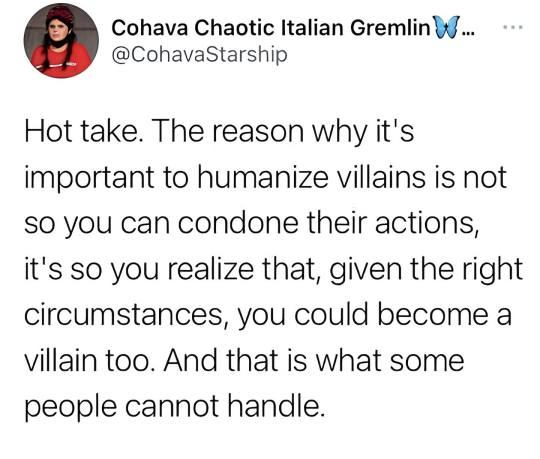
92K notes
·
View notes
Text
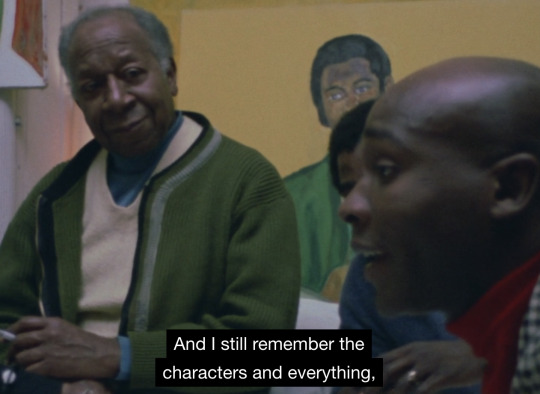
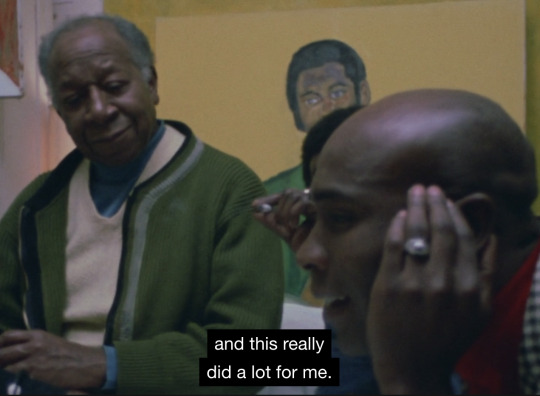
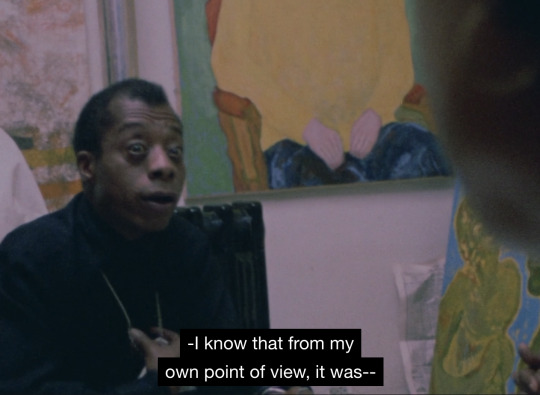
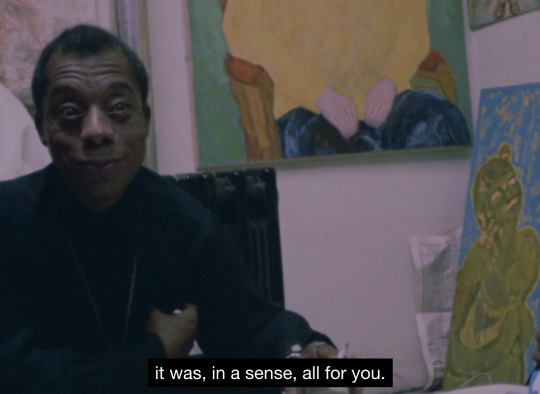



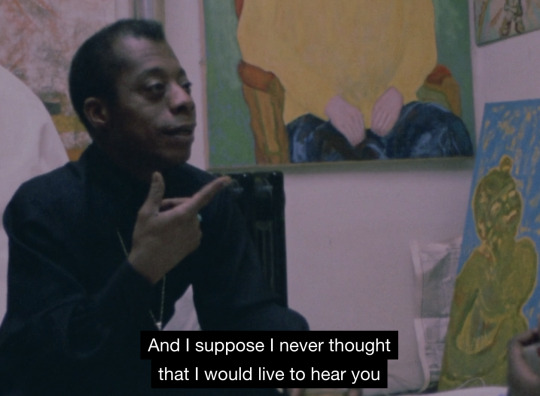
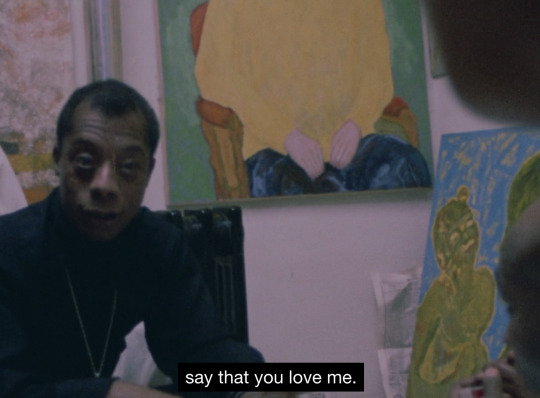
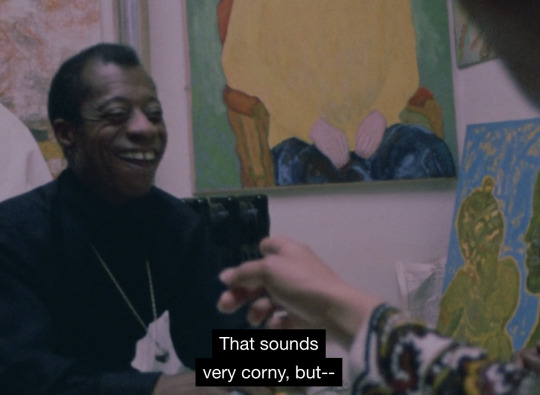
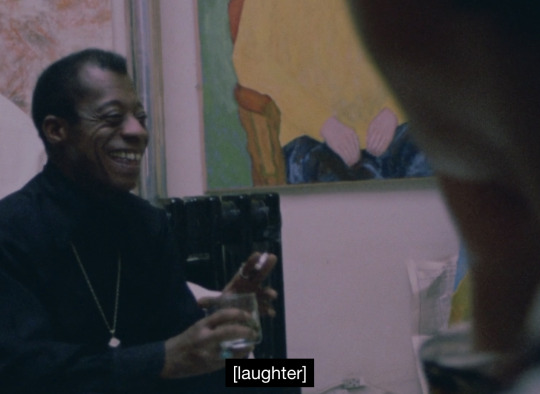
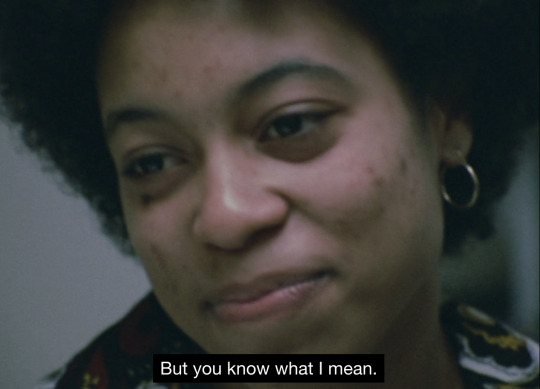
MAN: The first time I had the opportunity of reading your book, "Another Country," I believe—and this was quite some time ago. But that was the first book I ever read from cover to cover. And I haven't read another since. And—really!—and I still remember the characters and everything, and this really did a lot for me, you know? JAMES BALDWIN: I know that from my own point of view, it was—it was, in a sense, all for you. Do you know? I know that I love you, but you haven't necessarily got to know that. And I suppose I never thought that I would live to hear you say that you love me. That sounds very corny, but—[laughter]—but you know what I mean.
Meeting the Man: James Baldwin in Paris
438 notes
·
View notes
Text
btw you can watch meeting the man: james baldwin in paris (1970) for free on youtube & its only like 30 minutes long so do yourself a favour & go do it ‼️‼️‼️‼️‼️‼️
101 notes
·
View notes
Text
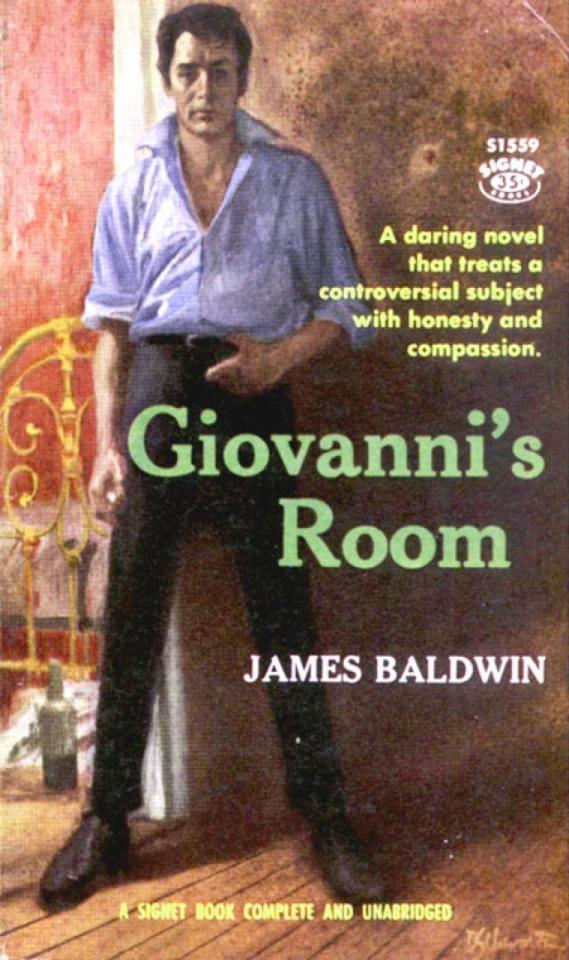
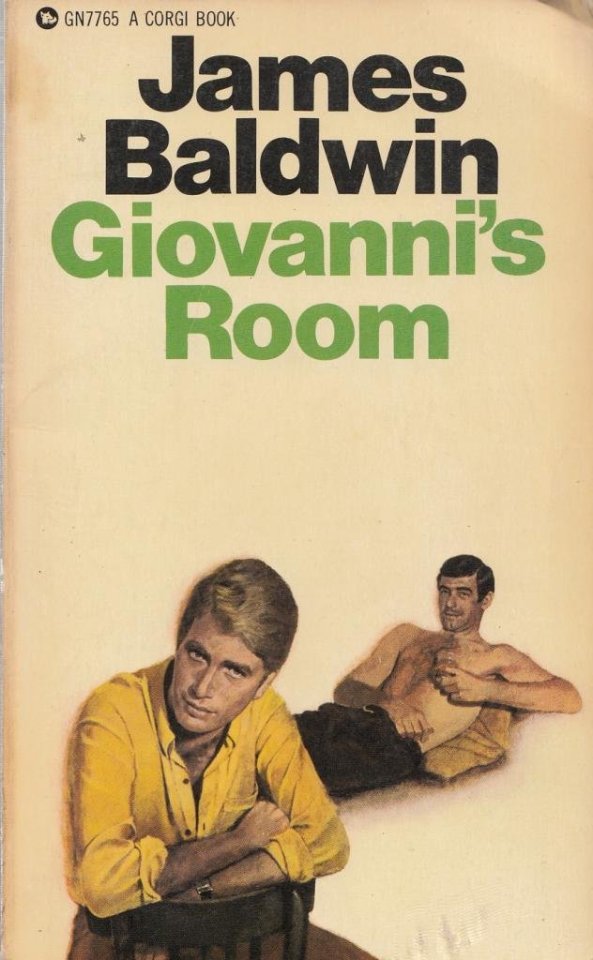
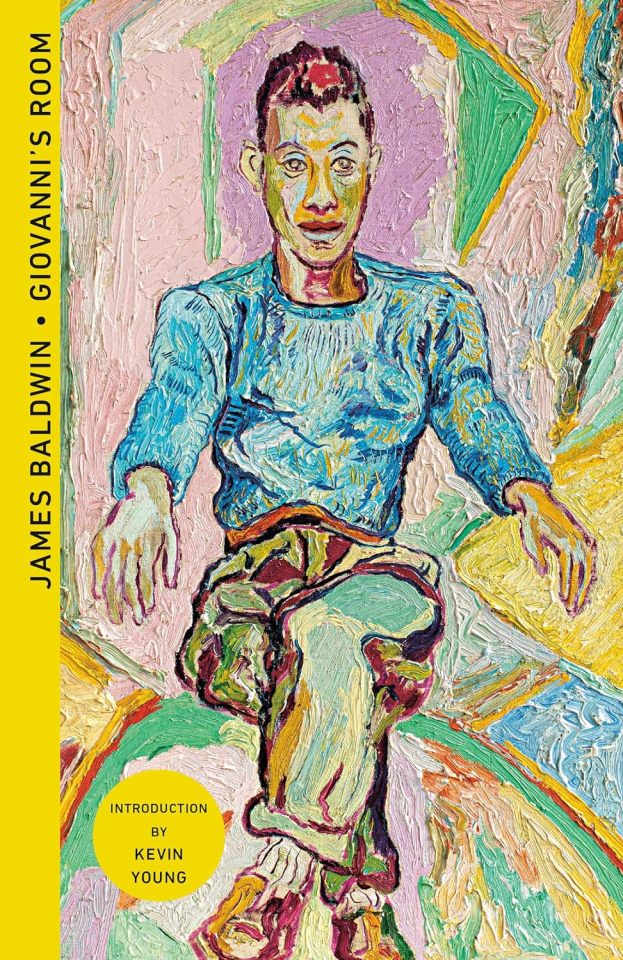
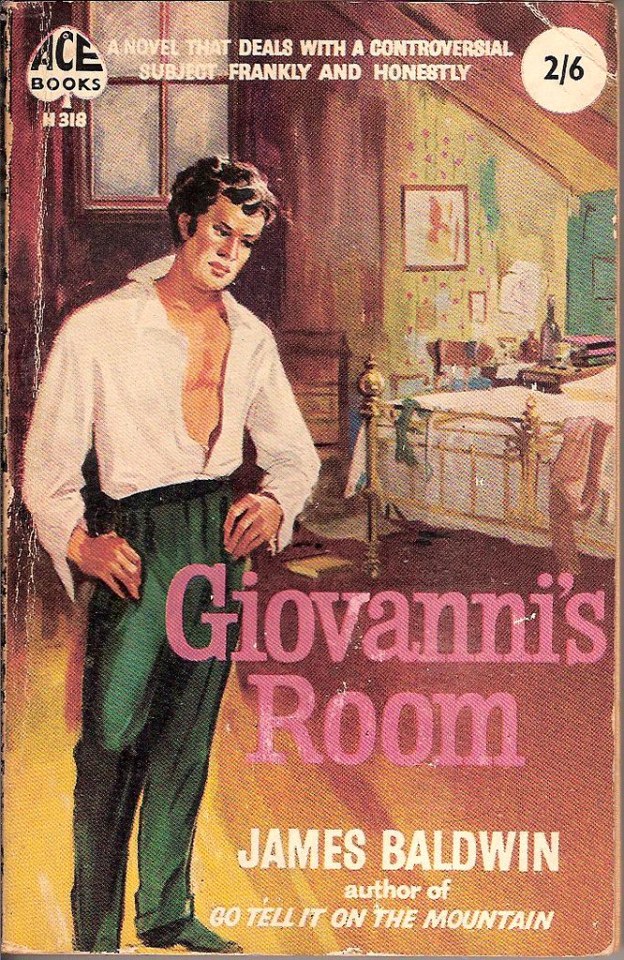
Giovanni's Room (1956) written by James Baldwin. Giovanni's Room is considered by many to be one of the best books on homosexuality ever written, and in 2019 the BBC listed it on it's list of 100 Most Influential Novels. The novel centers on an American man living in Paris and his relationships, particularly an Italian bartender named Giovanni whom he meets in a gay bar. The themes of the novel are social isolation, Identity, sexuality, masculinity, manhood, internalized homophobia, and LGBT spaces and movement in the public sphere.
#classic#style#gay#art#gay artist#gay art#gay history#lgbt history#gay literature#lgbt literature#gay books#lgbt books#james baldwin#giovanni's room
93 notes
·
View notes
Note
I think an important thing to remember when discussing Lestat as a queer icon (since it's a topic on the blog lately) is the fact that he's a queer horror icon. That man was never going to be a good man lol. It's exactly how Dr. Frank-n-Furter is a queer icon despite also being a villain and problematic. It's important to see people that we could relate to or admire in some aspects also be completely terrible, to avoid conflating someone you like with someone you who is good/should be imitated. Especially in the context of domestic violence and abuse in queer relationships. I wish this nuance was more present in fandom, because I don't like how people either treat Lestat like he's just a regular queer icon (as in, they ignore the part that makes him a horror to deal with), or diminish his queerness.
I'm also looking forward to people claiming Louis as a queer icon, I have hopes that it will become a more widespread topic as the show simmers, because I also think that Lestat being heralded as a queer icon in the show comes from decades and decades of him being considered one outside of it. This is the firts time (to my knowledge) that Louis has been compelling to the general public, so I guess with time he'll gain more weight in that discussion. I know it might sound too optimistic, given how black queer characters are usually treated, but I'd rather feel like we can go somewhere with this than feeling dejected.
I would write so many things about Lestat's and Louis' queerness and how they differ and interact and affect their lives and the narrative if I had the time. I'd also like to read/hear more about how Louis' queerness interacts and overlaps with his identity as a black man, so if you (or anyone) have any recs I'll gladly take them.
I think the discussion and even the portrayal of DV in queer (and interracial) relationships is a *huge* one for ppl to sidestep and has been one of the most disappointing things here tbh. we *haven't* seen that explored much in queer stories and it's so fucking *common* irl. there's a *lot* to explore there in so many directions, but ppl skip over that all the time just bcuz they don't want anyone to be "mean" to lestat. u can like things and still discuss and criticize them. as u said, look at the rocky horror picture show and the impact that's had. a lot of queer existence in general is always being "other" somehow, and that's why horror is such a good genre for it. to strip that away bcuz u just wanna play rupaul's drag race with lestat is....I mean, ppl can do what they want on their own, but this collective bullshit of forcing others to conform to this too and thinking ur "right" for doing it is a majority of the reason this fandom sucks. most ppl don't even hate lestat tbh, it's these fans that are the problem. nobody lets anyone meet the story where it's at.
I def think, regardless of what the show ends up becoming as a whole, that amc louis has made a huge impact as a black, queer character in major media. I hope ppl continue to analyze him and be inspired by this character and keep it all rolling forward. nobody expected this to be as good as it was at portraying louis and we're blessed af to have jacob in the part too.
god, I don't remember all the good posts I've seen about louis anymore. I tried to even look but I think most were out of the tags and long ago too. I remember a rly good one talking about claudia's relationship to louis and how he prbly wasn't allowed to play with grace's dolls as a kid, so claudia was kind of his "permission" to do that. it also gives a slightly different perspective to claudia's "doll-like" existence, since this was not something explored in louis in the books or 1994 film.
I feel like, if u or anyone is unfamiliar with james baldwin, reading his stuff will give some irl perspective to amc louis too in various ways. equal in paris is a good S2 companion. I think rolin jones even said giovanni's room was an inspiration for S2 too.
#asks#interview with the vampire#amc interview with the vampire#interview with the vampire amc#iwtv amc#amc iwtv#iwtv 2022#lestat de lioncourt#louis de pointe du lac#gay#queer#horror#abuse
23 notes
·
View notes
Text
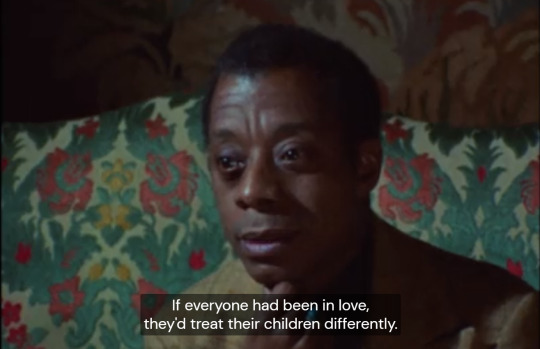

James Baldwin: Meeting the Man in Paris (1970, dir. Terence Dixon)
74 notes
·
View notes
Text






Meeting the man: James Baldwin in Paris (1970)
13 notes
·
View notes
Text
Book Review 40 – Giovanni’s Room by James Baldwin
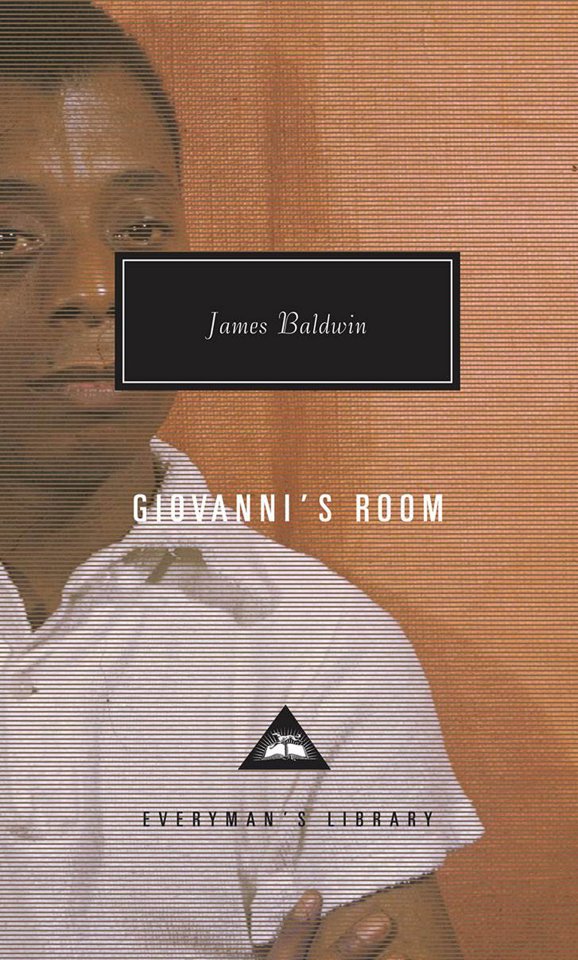
Okay, 40th book of the year! And yes I’m going to be smug about that, no matter how pathetically it pales in comparison to some of the rest of you. To commemorate the occasion I decided to acquire some actual Culture of the kind I can talk about reading to older relatives and have them nod approvingly. I’d say I wish this had been assigned in some English class I took, but honestly I’d have just ended up skimming and using sparknotes and generally ruined it for myself.
Baldwin, as it turns out, really does live up to the hype. This book was absolutely sublime. I feel like it’s going to be impossible to be fair to whatever I read next.
The book follows David, an American expat in late ‘50s Paris. Specifically, a queer man with truly apocalyptic levels of internalized homophobia and lack of self-awareness spending his late 20s valiantly pretending not to be gay while contriving every possible excuse not to go back to his father and the rest of his life in America. The book takes place while his girlfriend is taking an extended vacation in Spain deciding whether she wants to marry him, and he meets Giovanni, a gorgeous Italian man who’d left his village and ended up in Paris under unclear circumstance, while he’s working at a gay bar David views with visceral contempt even as he visits it. They have a passionate romance, and unsurprisingly it all falls apart in a mess of a tragedy that ruins just about everyone involved (Giovanni most of all).
This was the most beautiful thing I’ve read all year. I’m not even sure it’s particularly close. Every single page had a line or two of incidental narration or dialogue that struck me enough to want to save it – I’d given up trying to note them all by the end of the first chapter. The narration has the sort of elevated, literary quality where everyone is two or three times more eloquent and articulate than they really should be, but when the things they say are so lovely it’s hard to mind that minor offence against verisimilitude – the constant peppering of French into everyone’s dialogue is honestly much more of an annoyance, if only because it keeps making me wonder what language all the other dialogue among these French Parisians is supposed to be in. The exact details of their speech (and tendency to monologue about the details of their psychology) aside, just about every character felt really, achingly real, all broken by the world in one way or another and dealing with it with whatever self-destructive coping mechanisms they have to call their own. Insert your favourite Richard Silken quote here.
Tangentially to the actual content of the book; I of course know Baldwin was one of the canonical Great Authors of the 20th century (I knew this before I knew literally any other fact about him), but my god does the edition I have of the book lay it on thick. There’s a 17-page forward that seemed to be an incredibly dryly written English essay talking about his influences and the role of Paris in American literature and etc (I skimmed the first few pages and skipped the rest, as is my habit with forwards by people who had nothing to do with actually creating the book and whose name I don’t recognize), followed by several more pages of a timeline of the authors life. I swear it’s like they’re trying to make reading this seem as much like homework as possible.
Even more tangentially; I was aware that Baldwin was gay, before reading this, and more vaguely aware that some of his work explored this. But I was expecting more, like, Great Gatsby-plus levels of subtext, not just explicit and unsanitized portrayals being the focus of the entire book. That came out in ‘59! Not exactly an obscure or reviled one either. I feel like I could go back and retroactively give myself permission to sneer and roll my eyes at a lot of ‘grounbreaking queer representation’ now. (This is a sign I have spent altogether too much of my life reading discourse on tumblr and tiwtter).
Trying to talk about the themes of Giovanni’s Room is probably just wasted effort – spend five minutes and I’m sure you can find an extensively researched essay by someone whose devoted years of their life to the subject. But it did really strike me how, like, fundamentally inegalitarian the book’s vision of romance is? Aside from David and Giovanni themselves I mean (and even then, David’s internalized homophobia expressed itself in large part through a terror and resentment of being made the woman (domestic homemaker) to Giovanni’s man (breadwinner)). David and Hella’s relationship is just drowning in ‘50s patriarchy, of course, with the future they sketch out for themselves both baldly hierarchical and just incredibly bleak, and David’s parents and upbringing aren’t exactly inspirational reading either. But Paris’ gay underground isn’t exactly portrayed as a liberated and welcoming space – it’s disgusting older men blatantly exploiting and being exploited by desperate younger ones, everyone involved pretending they don’t know what they’re doing and hating themselves and each other for it. All just incredibly unsentimental and anti-romantic.
David as a character and as a narrator really was fascinating, too. In that he’s such a fucking mess with zero awareness of his emotions who keeps making everything worse and seems to almost cause as much heartache for everyone around him as he possibly could. If he wasn’t the protagonist he’d be the most loathsome character in the book, or at least close to it. Was great.
Though one thing that really does drive home how historical the setting is is just how coincidental so many social meetings are. The cast is largely a bunch of bohemians and vagabonds and expatriates without real fixed addresses, and so much of their interaction revolves around just happening to run into each other as they frequent some of the same locales. Which, like, yes, that is just how socializing worked for most people until a historical ten minutes ago, but still very alien to me, someone with an electronic correspondence planning and scheduling ~90% of social things I’ve done since I left school.
Anyway yes, this isn’t an easy read – most emotional and heartwrenching thing I’ve read all year by far, and the only thing last year I can really think of that might beat it is the final chapters of The Making of the Atomic Bomb – but it really is a beautiful one. Five stars.
88 notes
·
View notes
Video
youtube
James Baldwin — I'm writting for people, baby (Meeting the man)
From Meeting The Man : James Baldwin in Paris. Directed by Terence Dixon United Kingdom, France, 1970.
11 notes
·
View notes